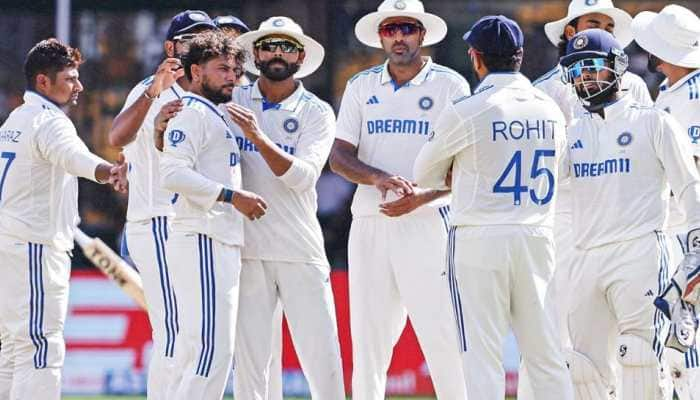Triple Talaq Bill clears Rajya Sabha hurdle in big win for Muslim women
This Bill criminalises the practice of instant divorce by Muslim men and seeks jail term for the guilty and proposes to protect the rights of married Muslim women and to prohibit divorce by pronouncing talaq by their husbands.
Trending Photos
)
In a massive victory for the Muslim women across the nation, the Muslim Women (Protection of Rights on Marriage), Bill, 2019, popularly called Triple Talaq Bill, was passed in the Rajya Sabha on Tuesday. It was passed with a total of 99 votes and 84 votes went against it.
This Bill criminalises the practice of instant divorce by Muslim men and seeks jail term for the guilty and proposes to protect the rights of married Muslim women and to prohibit divorce by pronouncing talaq by their husbands.
It will be signed by President Ram Nath Kovind to make it an Act, in the next step. The Bill was passed in the House in the third attempt as it was twice sent back from Rajya Sabha.
After the Bill was passed, Union Minister Ravi Shankar Prasad called it a historic day. "Today is a historic day. Both the Houses have given justice to Muslim women. This is the beginning of a transforming India," said a smiling Prasad.
The Bill was introduced in the Rajya Sabha by Prasad saying that it should not be seen from the political prism or as vote bank politics. "It's an issue related to humanity...it is related to the dignity of the women...It is an issue of gender justice and equality," Prasad said while introducing the Bill.
Opposition parties termed the Bill as "unconstitutional" and stressed that the Bill needs to be referred to a Select Committee of Parliament for further scrutiny. Participating in the debate on the Triple Talaq Bill in the Rajya Sabha, Congress, Trinamool Congress, Samajwadi Party (SP), Bahujan Samaj Party (BSP), Rashtriya Janata Dal (RJD), Nationalist Congress Party (NCP) and the Left parties opposed the Bill. The NDA constituents -- AIADMK and Janata Dal-United -- also opposed the Bill and staged a walkout.
Leader of Opposition Ghulam Nabi Azad questioned the government`s intention for bringing the Bill and said it was a "misnomer" and "politically motivated". "We are not against women`s empowerment but please don`t target a specific community. If you want women to empower, why don`t you bring the Reservation Bill? The Bill claims to protect Muslim women but the idea is to destruct Muslim families. I strongly oppose the Bill," he said.
Calling the Bill impartial and unconstitutional, he said the government should also think about women of other religions, who are victims of divorce. Claiming that the Bill was reintroduced after "cosmetic surgery", he asked the government to refer it to the Select Committee.
Opposing the Bill, Trinamool`s Dola Sen urged the government to remove the draconian criminality clause from the Bill which provides to send the husband to jail for three years for pronouncing triple talaq. "Will the wife not be allowed to re-marry for three years? What will she do once the husband is out of jail? If this government is really serious about women`s empowerment, bring the Women`s Reservation Bill. Please introduce the Bill which will benefit 60 crore women," she said.
SP`s Javed Ali Khan said that criminalising a civil offence shows that the intention of the government was suspicious. He accused the BJP of doing politics and said the Bill was brought for scoring political points. BSP`s Satish Chandra Mishra, NCP`s Majid Memon, and RJD`s Manoj Jha also opposed the Bill and questioned the government`s intention behind bringing the Bill.
The Bill was passed in the Lok Sabha on July 25. The MPs from Congress, SP, BSP, DMK, TMC and BJP ally JD(U) staged a walkout from the Lok Sabha in protest against the Bill. It may be recalled that this bill was the first draft legislation tabled by the Narendra Modi government in its first session after it came to power in May for the second term.
Stay informed on all the latest news, real-time breaking news updates, and follow all the important headlines in india news and world News on Zee News.
Live Tv







)
)
)
)
)
)
)
)
)
)
